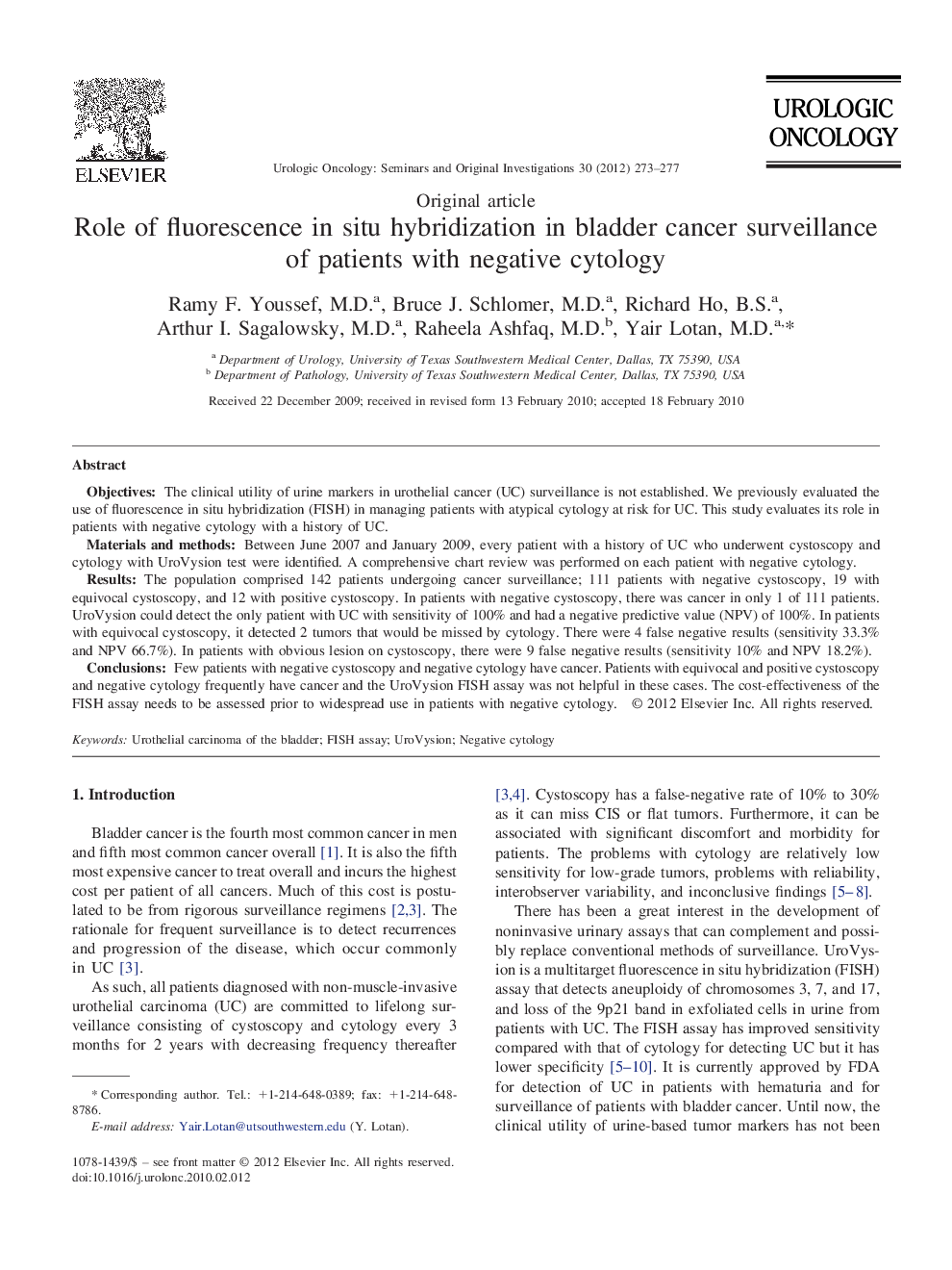| Article ID | Journal | Published Year | Pages | File Type |
|---|---|---|---|---|
| 4000266 | Urologic Oncology: Seminars and Original Investigations | 2012 | 5 Pages |
ObjectivesThe clinical utility of urine markers in urothelial cancer (UC) surveillance is not established. We previously evaluated the use of fluorescence in situ hybridization (FISH) in managing patients with atypical cytology at risk for UC. This study evaluates its role in patients with negative cytology with a history of UC.Materials and methodsBetween June 2007 and January 2009, every patient with a history of UC who underwent cystoscopy and cytology with UroVysion test were identified. A comprehensive chart review was performed on each patient with negative cytology.ResultsThe population comprised 142 patients undergoing cancer surveillance; 111 patients with negative cystoscopy, 19 with equivocal cystoscopy, and 12 with positive cystoscopy. In patients with negative cystoscopy, there was cancer in only 1 of 111 patients. UroVysion could detect the only patient with UC with sensitivity of 100% and had a negative predictive value (NPV) of 100%. In patients with equivocal cystoscopy, it detected 2 tumors that would be missed by cytology. There were 4 false negative results (sensitivity 33.3% and NPV 66.7%). In patients with obvious lesion on cystoscopy, there were 9 false negative results (sensitivity 10% and NPV 18.2%).ConclusionsFew patients with negative cystoscopy and negative cytology have cancer. Patients with equivocal and positive cystoscopy and negative cytology frequently have cancer and the UroVysion FISH assay was not helpful in these cases. The cost-effectiveness of the FISH assay needs to be assessed prior to widespread use in patients with negative cytology.
